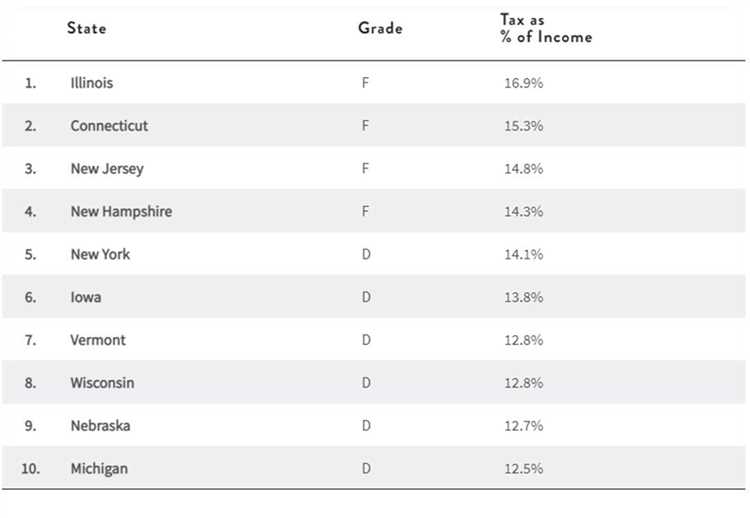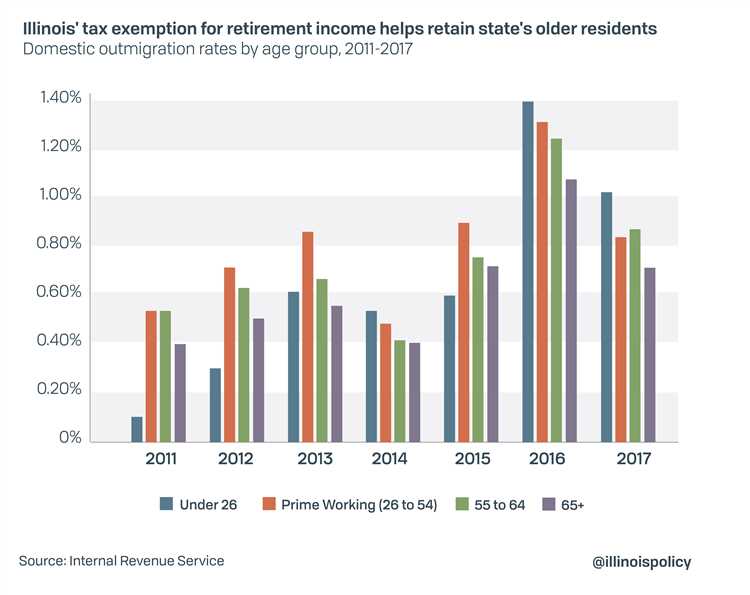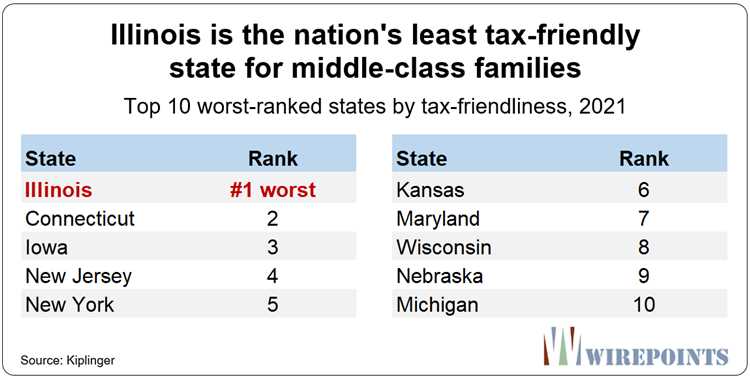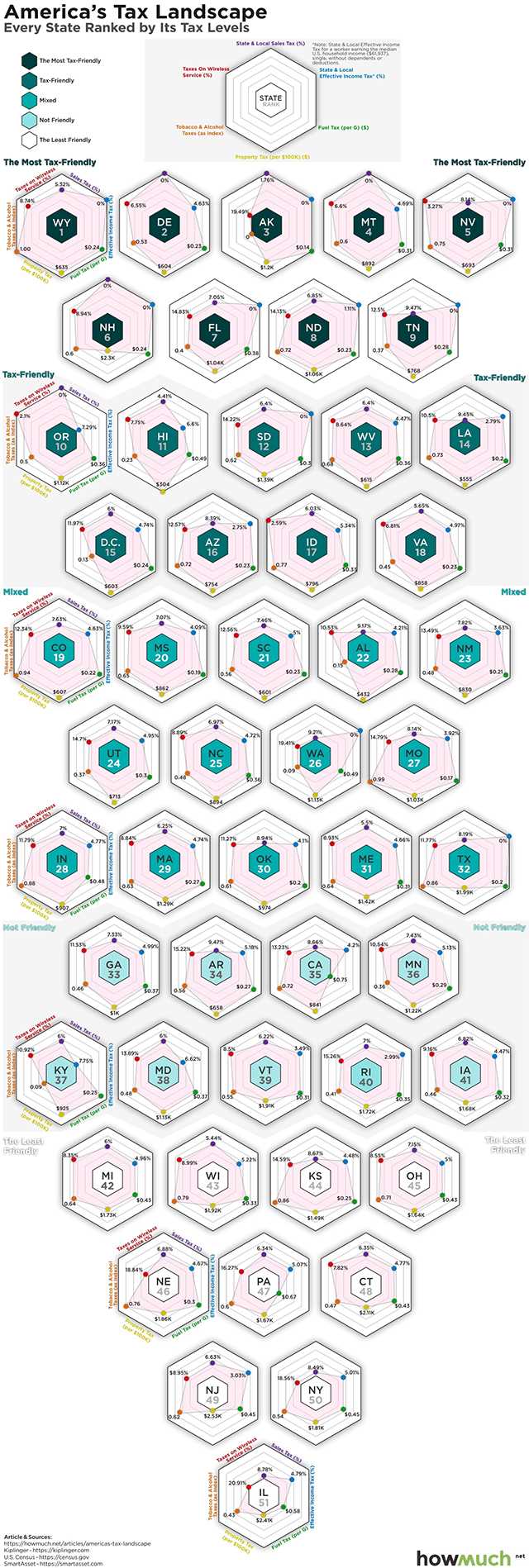When it comes to taxes, the state of Illinois has a reputation that precedes it. Many people wonder if Illinois is a tax-friendly state or if it’s better to look elsewhere. In this article, we will delve into the tax landscape in Illinois to help you understand the various taxes and whether the state is truly tax-friendly.
One of the key factors to consider when evaluating the tax-friendliness of a state is its income tax rates. In Illinois, the income tax rate is a flat rate of 4.95%, which means that everyone, regardless of their income level, pays the same percentage. This can be seen as both a positive and a negative. On the one hand, it simplifies the tax structure and makes it easy to calculate how much you owe. On the other hand, it means that higher-income individuals are not subject to a higher tax rate, which may be seen as unfair by some.
In addition to income tax, Illinois also has sales tax, property tax, and various other taxes that individuals and businesses must navigate. The sales tax rate in Illinois can vary depending on the county and municipality, ranging from 6.25% to 11%. This means that the actual sales tax rate you pay can differ depending on where you are in the state. Property tax rates in Illinois are among the highest in the country, which can be a significant cost for homeowners.
While Illinois may not be known for its tax-friendliness, it’s important to consider the overall tax burden in relation to the services and benefits provided by the state. Illinois has a robust infrastructure, excellent schools, and a vibrant cultural scene, all of which require funding. The taxes collected by the state help support these services, and it’s up to each taxpayer to determine if the benefits outweigh the cost.
In conclusion, Illinois has a complex tax landscape that includes income tax, sales tax, and property tax. While the state’s flat income tax rate may simplify the process, it also means that higher-income individuals do not pay a higher percentage. Additionally, the sales tax and property tax rates can be significant. However, it’s important to consider the overall benefits provided by the state when evaluating its tax-friendliness. Ultimately, the decision of whether Illinois is tax-friendly or not depends on individual circumstances and priorities.
- Tax Rates in Illinois
- Income Tax
- Sales Tax
- Income Tax in Illinois
- Sales Tax in Illinois
- Local Sales Taxes
- Exemptions and Exclusions
- Property Tax in Illinois
- Question-answer:
- What is the current tax rate in Illinois?
- Are property taxes high in Illinois?
- Does Illinois have any tax incentives?
- Is Illinois tax-friendly for retirees?
Tax Rates in Illinois

When considering the tax landscape in Illinois, it is important to understand the tax rates that apply to residents, businesses, and other entities. Illinois has a flat income tax rate, meaning that regardless of income level, everyone pays the same percentage of their income in taxes.
Income Tax

The current income tax rate in Illinois is 4.95%. This rate applies to all individuals and corporations, regardless of their income level. Whether you earn $20,000 or $200,000, the income tax rate remains the same.
It is worth noting that Illinois used to have a graduated income tax system, where higher earners would pay a higher percentage of their income in taxes. However, in 2020, a constitutional amendment was passed that changed the tax structure to a flat rate system.
Sales Tax
Illinois has a state sales tax rate of 6.25%. However, it is important to check the local sales tax rates, as many municipalities in Illinois have their own additional sales tax. As a result, the total sales tax rate can vary depending on where you are in the state.
The average combined sales tax rate in Illinois, including both state and local taxes, is around 9.08%. This can significantly impact the final purchase price of goods and services.
It is also worth noting that some items, such as groceries and prescription medications, are exempt from sales tax in Illinois. This can provide some relief for certain essential purchases.
Property Tax
Property tax rates in Illinois can vary significantly depending on the locality. On average, Illinois has one of the highest property tax rates in the country. Property tax rates are determined at the county level and can be influenced by factors such as school district funding and local government budgets.
In Illinois, property taxes are assessed at a rate of 1.95%, which means that if your property is valued at $200,000, your annual property tax bill would be approximately $3,900.
It is important to keep in mind that Illinois does offer some property tax relief programs, such as exemptions for senior citizens and disabled individuals. These programs can help alleviate some of the burden of property taxes for eligible residents.
Overall, while Illinois may not be considered the most tax-friendly state, understanding the tax rates and exploring any available exemptions or relief programs can help individuals and businesses navigate the tax landscape more effectively.
Income Tax in Illinois
When it comes to income tax, Illinois has a flat tax rate system. This means that everyone who earns income in the state pays the same percentage of their income towards taxes, regardless of how much they earn.
The current flat tax rate in Illinois is 4.95%. This rate has been in effect since 2017, when it was increased from 3.75%. Prior to that, it had been at 5% from 2011 to 2014.
While a flat tax rate may seem straightforward, it can have both advantages and disadvantages. On the positive side, it simplifies the tax system and makes it easier to calculate how much you owe in taxes. Additionally, a flat tax rate can be seen as fairer because everyone is treated equally regardless of their income level.
However, critics argue that a flat tax rate can be regressive since it takes a larger proportion of income from lower-income individuals. This is because lower-income earners rely more heavily on their income for basic necessities and may have fewer resources to offset the tax burden.
It’s important to note that Illinois also has other taxes in addition to the income tax. These include property taxes, sales taxes, and various excise taxes. When combined, these taxes can have a significant impact on residents’ overall tax burden.
| Tax Type | Rate |
|---|---|
| Income Tax | 4.95% |
| Property Tax | Varies by location |
| Sales Tax | 6.25% statewide, with additional local taxes |
| Excise Taxes | Varies by product (e.g. gasoline, tobacco, alcohol) |
Overall, income tax in Illinois is relatively simple due to its flat rate system. However, residents should be aware of the other taxes they may be subject to, as they can significantly impact their overall tax liability.
Sales Tax in Illinois

When it comes to sales tax, Illinois has both state and local taxes that are levied on various goods and services. The state sales tax rate in Illinois is currently 6.25%. However, it’s important to note that some items may be subject to additional local sales taxes, which can vary depending on the county and municipality.
Local Sales Taxes

In addition to the state sales tax, local governments in Illinois have the authority to impose additional sales taxes. These local taxes are known as Retailers’ Occupation Tax (ROT), which is a tax on the privilege of selling tangible personal property at retail in a given area. The rate of ROT can vary from one locality to another, ranging from 0.25% to 4.75%. It’s important for businesses and consumers to be aware of these local sales taxes, as they can significantly impact the overall costs of goods and services.
Exemptions and Exclusions
While most goods and services in Illinois are subject to sales tax, there are certain exemptions and exclusions that may apply. Some common exemptions include sales of prescription drugs, medical appliances, certain types of food and beverages, agricultural equipment, and manufacturing machinery and equipment. It’s important for businesses and consumers to understand these exemptions and exclusions to ensure compliance with the sales tax laws in Illinois.
| Item | Sales Tax Rate |
|---|---|
| General Merchandise | 6.25% |
| Prepared Food and Beverages | 6.25% |
| Prescription Drugs | Exempt |
| Medical Appliances | Exempt |
| Agricultural Equipment | Exempt |
| Manufacturing Machinery and Equipment | Exempt |
It’s important to consult the Illinois Department of Revenue or a tax professional for specific guidance on sales tax rates and exemptions, as they can vary based on location and the nature of the goods or services being sold.
Property Tax in Illinois

When it comes to property tax, Illinois has one of the highest rates in the country. Property tax is a major source of revenue for local governments in Illinois, funding schools, police and fire departments, and other essential services.
The property tax system in Illinois is based on the fair market value of the property. The County Assessor determines the value of each property, taking into account factors such as location, size, and condition. Property owners receive an assessment notice that indicates the assessed value of their property.
Once the assessed value is determined, the property tax rate is applied to calculate the tax bill. The property tax rate is expressed as a percentage of the assessed value. In Illinois, property tax rates can vary significantly from one area to another, influenced by factors such as local government budgets and needs.
It is worth noting that Illinois has a system of property tax exemptions and deductions that can lower the tax burden for certain property owners. For example, there are exemptions for senior citizens, disabled persons, veterans, and eligible organizations that meet specific criteria.
Due to the high property tax rates in Illinois, many homeowners and businesses struggle to keep up with their tax payments. Property tax delinquency can lead to interest and penalties, as well as the possibility of a tax lien or foreclosure on the property.
Overall, property tax in Illinois is a significant financial obligation for property owners. It is important for individuals to understand the property tax system and explore available exemptions and deductions to alleviate the burden.
Question-answer:
What is the current tax rate in Illinois?
The current tax rate in Illinois is 4.95% for individual income tax.
Are property taxes high in Illinois?
Yes, property taxes in Illinois are generally considered to be high compared to national averages. The exact rates vary depending on the county and municipality.
Does Illinois have any tax incentives?
Yes, Illinois offers several tax incentives to businesses and individuals. For example, there are tax credits for research and development, film production, and job creation. Additionally, there are tax breaks available for certain industries or areas deemed economically disadvantaged.
Is Illinois tax-friendly for retirees?
It depends. Illinois does not tax Social Security benefits, but other retirement income, such as pensions and 401(k) withdrawals, is subject to state income tax. Additionally, property taxes can be a burden for retirees on fixed incomes. However, there are some programs in place to help low-income seniors with property tax relief.